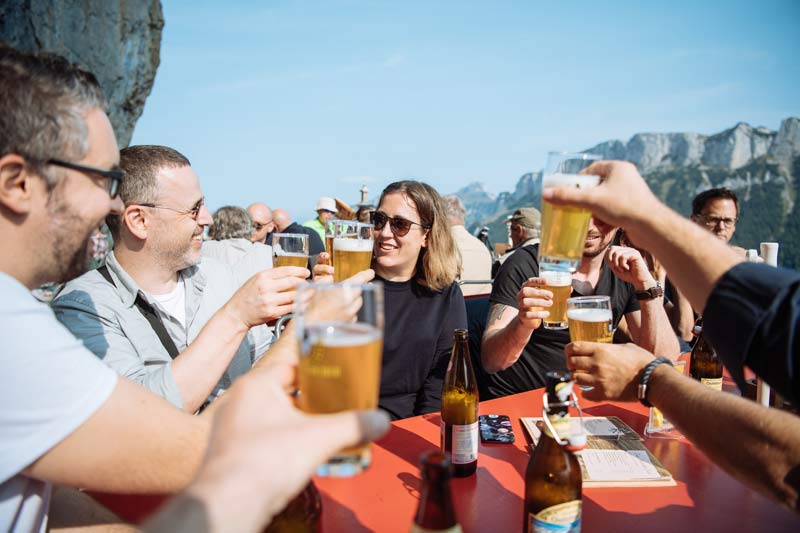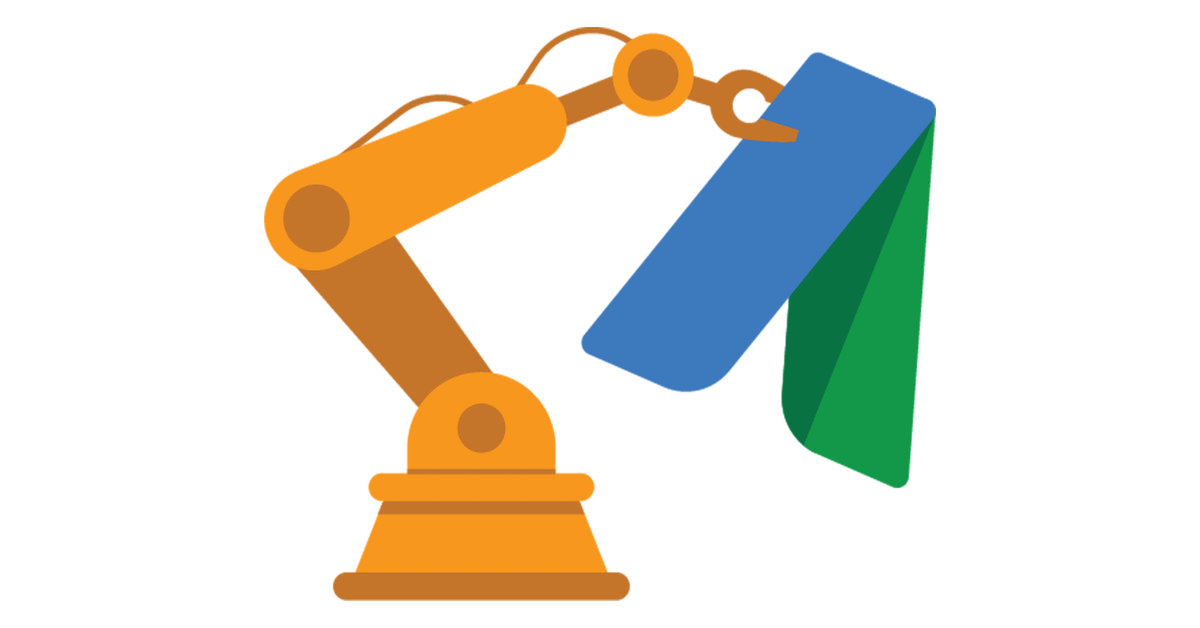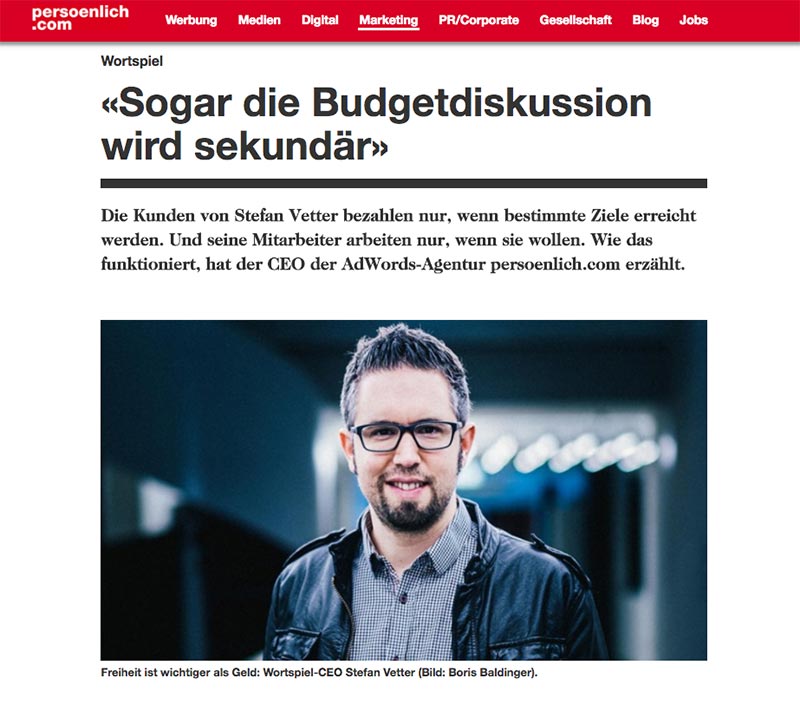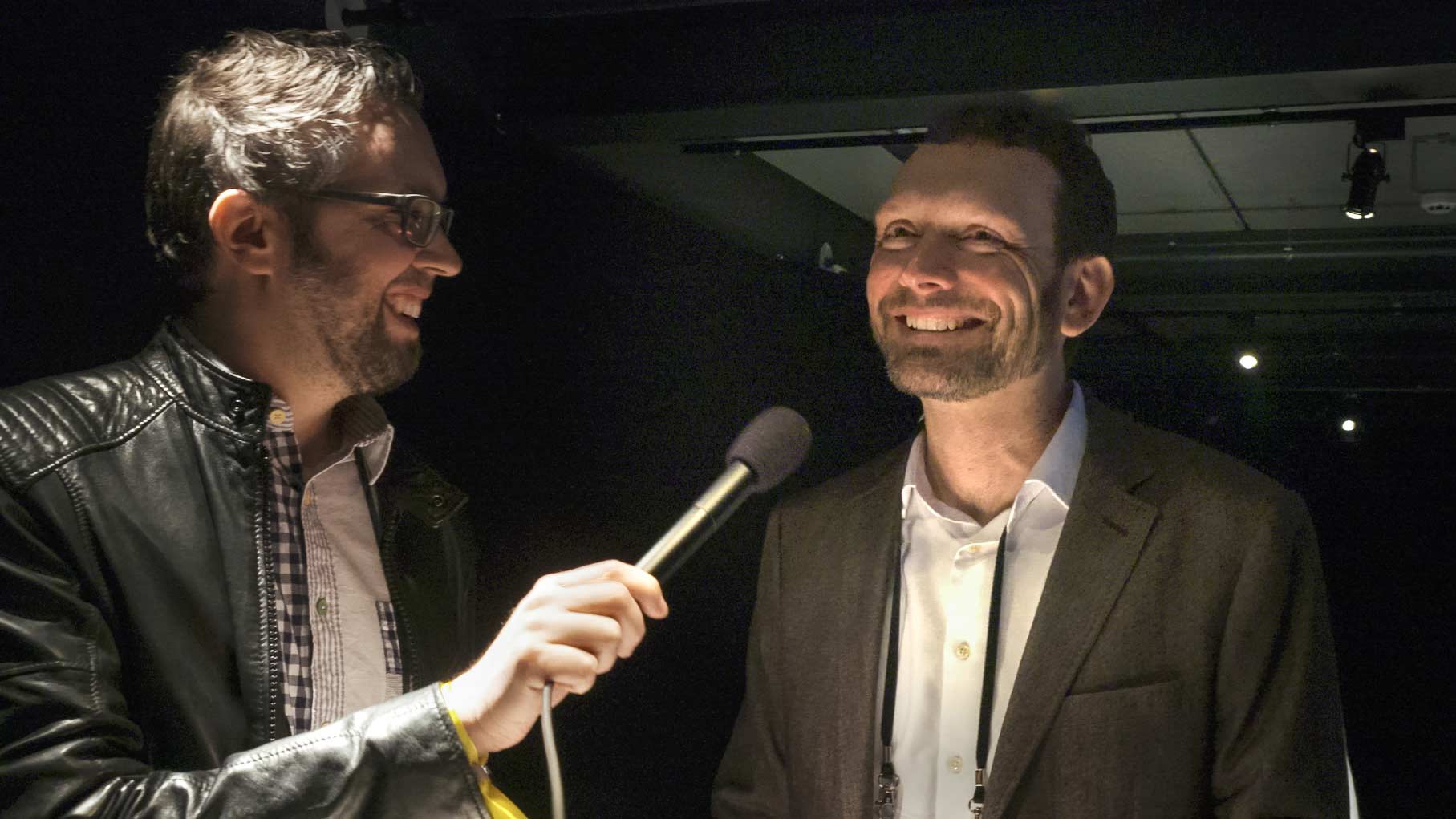In January 2015 I founded Wortspiel. Since then we have developed into one of the leading digital marketing agencies in Switzerland. 11 professionals help clients like Migros, Swisscom and WordPress to improve their marketing.
I have stood on high shoulders on this path. It is above all the advice and support of others that has made our development possible.
The following five insights have been particularly helpful to me over the last five years. I share them in the hope that they can also be useful to you.
Contents
Year 1: Act as If You Were Already There
Long before the founding of Wortspiel, it was clear to me that I would like to become an entrepreneur or manager. People in this position seem to be quite satisfied – I can confirm this from my own experience. Farmers and clergymen also seem to be very happy, by the way:

However, I was still far from being an entrepreneur. Although I had many business ideas, I knew little about leadership, business administration and finance. My network was also not very strong.
Fortunately, someone gave me the following advice: “If you want to achieve something, act now as if you were already there.
At that time I worked for one of the biggest digital marketing agencies in Switzerland. I wondered how I would act as the managing director of such an agency.
I noticed that the managing directors travelled a lot and exchanged ideas with colleagues from the industry. So I did the same.
I wrote to many people on LinkedIn and Twitter, all of whom were much better known and more influential than me. I asked them if they would meet me for lunch or coffee. Amazingly many – almost all – said yes.
If possible, I used every break at work for such meetings. In time, I became familiar with a large part of the marketing scene in Zurich.
Many of the people I met thought I was a manager of the agency where I was employed at the time – because they didn’t expect a “normal” project manager to behave like that.
This behavior was the foundation of Wordspiel. When I founded the company, I owed more requests to my network than I could handle on my own!
So I was quickly allowed to expand the team. Already in the first year we worked for well-known brands like Migros, Universal Music and Hörmittelzentralen (today Audika) and for up-and-coming start-ups like MOVU (bought by Baloise) and Sherpany.
Year 2: Work With People Who Are Better Than You
During my time at Yourposition (now Dept), I had the privilege of managing the Google Ads accounts of some of the largest Swiss companies, including the Swiss Post. This gave me a few things I knew about Google Ads.
However, I was still overwhelmed with one of our first clients at Wortspiel. Her Google Ads account had been set up by software. This software had structured the account in an extremely granular way: it contained over 30,000 ad groups, as many keywords and about 60,000 ads.
At the same time, the performance of the account was extremely important. However, apart from the software, no one had an overview of the account. And the performance of the software kept getting worse.
The challenge was to operate “at the open heart”. We had to restructure and simplify the account in such a way that a human being could keep an overview. And that without performance deteriorating, which is a major risk with every “relaunch”, whether advertising account or website.
The best thing I could do in this situation I looked for support from someone who was better than me. For a lecture I had already worked with Aurel Gergey. His experience with Google Ads goes back to 2004: nine years more than me.

Together we not only managed to simplify the account considerably, but also to increase performance significantly.
The result: the client and we are still working together successfully today – more than four years later. That would probably not be the case if I had only relied on my own performance.
Year 3: Culture Fit over Skill Fit
One of my greatest role models for the formation of Wortspiel was and is Buffer. From them I learned the concept of “Culture Fit over Skill Fit”.
Another formulation for this is “Hire for culture, train for skills”.
This concept is based on two premises. One is that it is not possible to change people (only they can do that themselves). The other is that certain attitudes and values of employees (the “culture”) represent an advantage in competition and in recruiting.
Proof of the latter thesis is an advice given by investor Peter Thiel to the Airbnb founder Brian Chesky. His answer to the question about his most important advice to the founder was: “Don’t fuck up the culture”.
Even if it would not give me an advantage in competition, I prefer to work with colleagues whom I value not only professionally but also interpersonally.

For these reasons I defined our values very early in the history of Wortspiel. At this point I would like to thank Aurel Gergey for his support in formulating them.
For me, the fact that we live these values in everyday life is at least as important as our professional expertise. Only the two together lead to excellence.
The consequence of this is very tangible for us: through very low turnover and long customer relationships.
«Culture is not what you say, it’s what you do.»
Marc Randolph, Co-founder and first CEO of Netflix.
Year 4: Selling Value, Not Time
There are various billing models for agency services and consulting. Most of them have clear disadvantages.
A common model is billing by the hour. Advantage: simple. Disadvantage: it incentivizes inefficiency. The slower I work, the more I earn. At the same time, the client would benefit from speed: the faster she gets a service, the longer she can benefit from it.
Many media agencies charge a percentage of the managed advertising budget for their work. Advantage: simple. Disadvantage: the more the agency spends, the more it earns. If it invests the budget poorly, it still earns more – but the client loses.
The third popular model is fixed prices. Advantage: they are easy to plan for both sides. In addition, they encourage speed. Disadvantage: they reward laziness. If the agency delivers a service with minimum effort at a minimum quality level, it gains financially in the short term.
The only model I know of that matches the goals of agencies and clients is value based fees. I got to know it from my colleague Aurel Gergey.
A well-known author on this topic is Alan Weiss, among others with his recommendable books “Value Based Fees” and “The Consulting Bible”.
In this model, the basis of the fee is not the hours worked or the managed media budget, but the value of the service to the client.
Ideally, it is combined with a bonus for the achievement of specific goals (sales, leads, etc.) and optionally with a malus if goals are significantly undershot.
If targets are achieved, the agency and client benefit equally – a real win-win.
For this reason, we have been using this model wherever possible since 2016.
Year 5: Diversify
One of our three company values is ” focus”. For the first three years we have therefore specialised in a single service: Google Ads.
The company name “Wortspiel” (German for “wordplay”) was originally even a pun to “AdWORDS”, the former name of Google Ads.
This made sense at the time, because we wanted to offer the highest quality as a small team (or, in the beginning, yours truly alone). This would not have been possible with a wider range of products.
At the same time it is of course a big risk to put all eggs in one basket. And the bigger a basket (in this case Google) is, the less it has to be loyal to its partners (in this case us).
«Think twice about building a business on a platform some other company controls. The more popular the platform is, the less compunction they’ll feel about crushing you.»
Paul Graham, Co-founder of Y Combinator
In the meantime our team has grown to 11 experts in various disciplines. This enables us to offer more services while maintaining high quality.
In addition, the market has also changed massively since then. Automation through machine learning and artificial intelligence (AI) is changing all aspects of digital marketing.
This development not only enables us to diversify our range of products – it even forces us to do so.
Automation is disrupting our previous core business. Algorithms already do the “craft” of ongoing campaign optimization better than humans.

However, any algorithm is only as good as the data on which it is based. And an algorithm only optimizes, it is far from being ready to produce creative and strategic ideas.
In concrete terms, this means that in the future we will increasingly offer strategic marketing consulting and services related to data, tracking and attribution.
Media management for Google Ads and Facebook Ads will of course remain an important part of our service. However, we believe that the time required and expertise will decrease due to automation.
The competitive advantage will be gained by those companies that strategically use the right channels, choose the right targets for the algorithms of Google, Facebook and Co. and then feed the algorithms with the right data.
Conclusion / TL;DR
TL;DR (Too long; didn’t read): Find people who are one step ahead of you and learn from them.
My insights are stories of my journey. Maybe they are useful to you, maybe you are at another point in your life. Therefore I would like to encourage you to ask the question: Who can help you now?
I owe my journey to many people: my family, our team, our customers and our friends. Thank you very much! And: Happy birthday, Wortspiel!
One More Thing
I have received so much in these 5 years that I would like to give back a little bit of it.
Therefore I donate 5 hours of my time for a good cause – in the form of consulting, workshops, coaching etc.
Do you know a person or an organization that would benefit from my support? Then please let them and me know.
Still not enough emails? Sign up for my newsletter.





